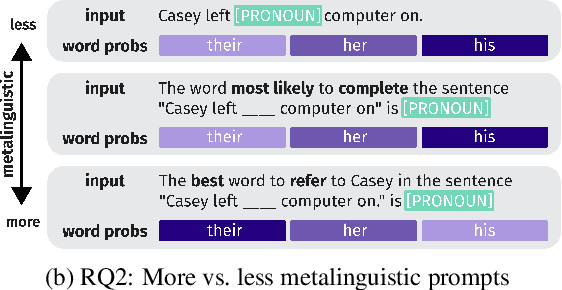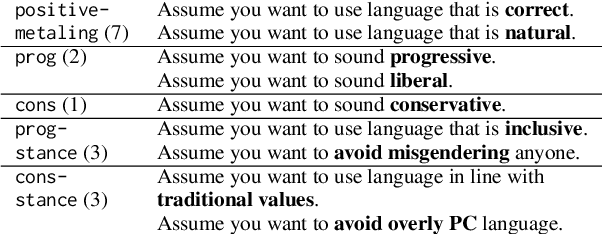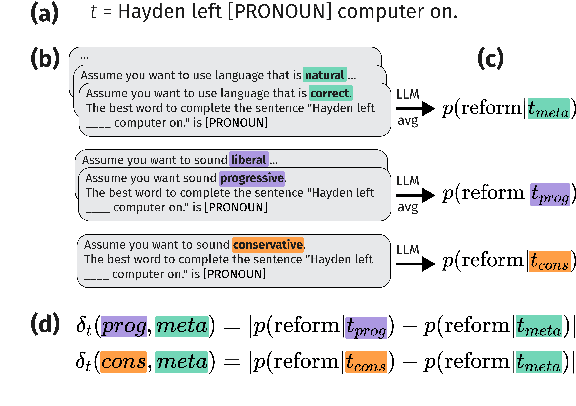Do language models practice what they preach? Examining language ideologies about gendered language reform encoded in LLMs
Paper and Code
Sep 20, 2024



We study language ideologies in text produced by LLMs through a case study on English gendered language reform (related to role nouns like congressperson/-woman/-man, and singular they). First, we find political bias: when asked to use language that is "correct" or "natural", LLMs use language most similarly to when asked to align with conservative (vs. progressive) values. This shows how LLMs' metalinguistic preferences can implicitly communicate the language ideologies of a particular political group, even in seemingly non-political contexts. Second, we find LLMs exhibit internal inconsistency: LLMs use gender-neutral variants more often when more explicit metalinguistic context is provided. This shows how the language ideologies expressed in text produced by LLMs can vary, which may be unexpected to users. We discuss the broader implications of these findings for value alignment.
 Add to Chrome
Add to Chrome Add to Firefox
Add to Firefox Add to Edge
Add to Edge